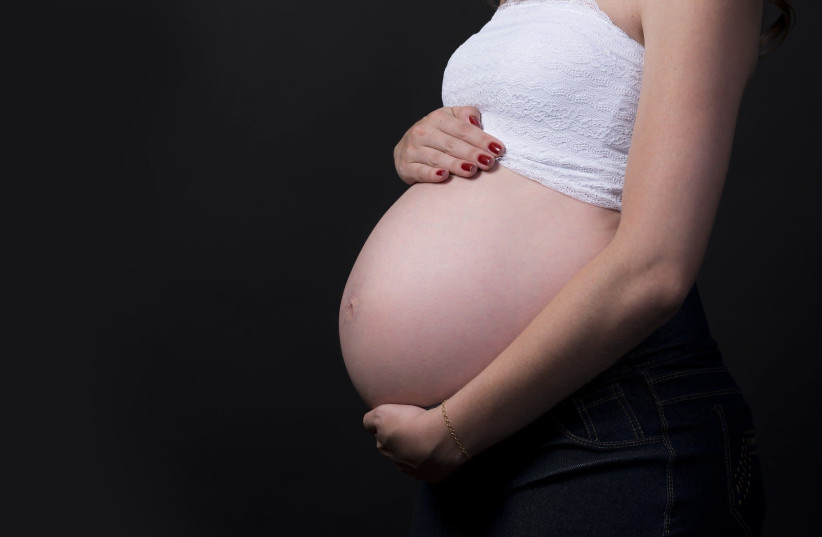When mothers suffer hardship as children or during their pregnancies when they grow up, the bacterial composition of their toddler’s gut microbiome undergoes harmful changes, according to an international research team headed by psychologists at the University of California at Los Angels.
It was previously understood that in rodents, prenatal stress affects microbiomes into adulthood, but how long after birth the effects lasted in humans was unknown. The changes to this community of microorganisms are likely among the ways that hardship affects a child’s socioemotional development.
The researchers, who were the first to document the transgenerational effects of adversity on the human gut microbiome, found small-to-medium changes in the children’s microbiomes.
What does stress during pregnancy have to do with a child's gut microbiome?
A growing body of evidence links the gut microbiome to brain and immune functioning and, according to the researchers, changes to that community of microorganisms are likely among the ways that hardship affects children’s socioemotional development.
The study, which is published in Proceedings of the National Academy of Sciences under the title “Multigenerational adversity impacts on human gut microbiome composition and socioemotional functioning in early childhood,” builds on previous research in rodents showing that prenatal stress disrupts maternal vaginal and gut microbiomes. Because babies acquire their first gut microbes passing through their mother’s birth canal, mothers’ microbiomes form the basis of their offspring’s.

Previous research in humans has shown that shortly after birth, stress experienced by the infant while in the womb and the mother’s own psychological distress influence the infant microbiome. While it was known that the effects of prenatal stress on rodent microbiomes persist into adulthood, scientists did not yet know how long after birth the disturbances remain in humans or whether they affected the next generation.
The study investigated the consequences of maltreatment to mothers during their childhoods, anxiety while pregnant and their children’s exposure to stressful life events in 450 mother–child pairs in Singapore when the children were two years old. The researchers asked mothers to recall abuse, neglect or other maltreatment they experienced during childhood, and mothers were screened for anxiety during the second trimester of pregnancy.
Researchers also interviewed the children’s primary caregivers to learn about stressful events that the children had experienced and their general behavior and health as toddlers, and researchers collected stool samples from the children. The researchers controlled for family income, which often serves as a proxy for childhood adversity.
Children whose mothers reported more anxiety in pregnancy had microbiomes in which the species of microorganisms had populations of similar sizes, a metric biologists call “evenness,” which had not been found before. Typically, the populations of the various species that make up the gut’s microflora are “lumpier,” with some species being abundant and others less common.
The gut microbes of children who experienced stressful life events after birth also had less genetic diversity, meaning that the microbes living in each child’s gut were more closely related to each other than such microbes usually are. However, while more experiences of adversity were correlated with less microbial genetic diversity in each child, the amount of adversity did not seem to affect how similar children’s gut microbiomes were to each other. There was still variation among the children.
“There are lot of questions around whether more diversity or evenness is better or worse when the gut microbiome is developing during childhood, so we don’t know if more is better at 2 years old,” said Francesca Querdasi, a UCLA doctoral student and the paper’s lead author. “But many of the species we found to be related to adversity are known to interact with the immune system in some way, suggesting that maybe the way the gut microbiome interacts with the immune system is different after adversity. There’s a lot that we need to explore in the future.”
The brain–gut microbiome connection develops rapidly during the first two to three years of life; it is likely that the changes due to adversity shown in the new study have some influence on children’s socioemotional development.
A nascent area of study called nutritional psychiatry, which researches how changes to diet could affect mental health, is developing as scientists learn more about the brain–gut microbiome connection.
“The microbiome gets a lot of attention and is very exciting, but it really is just one piece of the large and complicated puzzle of human health,” said UCLA psychology Prof. Bridget Callaghan and the paper’s senior author. “Our study is part of a growing body of research showing the effects of early exposure and transgenerational experience on the microbiome. When we understand how experiences of hardship can influence the gut microbiome, we can then try to manipulate diet, supplements and lifestyle to make positive impacts on an individual’s gut microbiome and broader developmental trajectory.”
